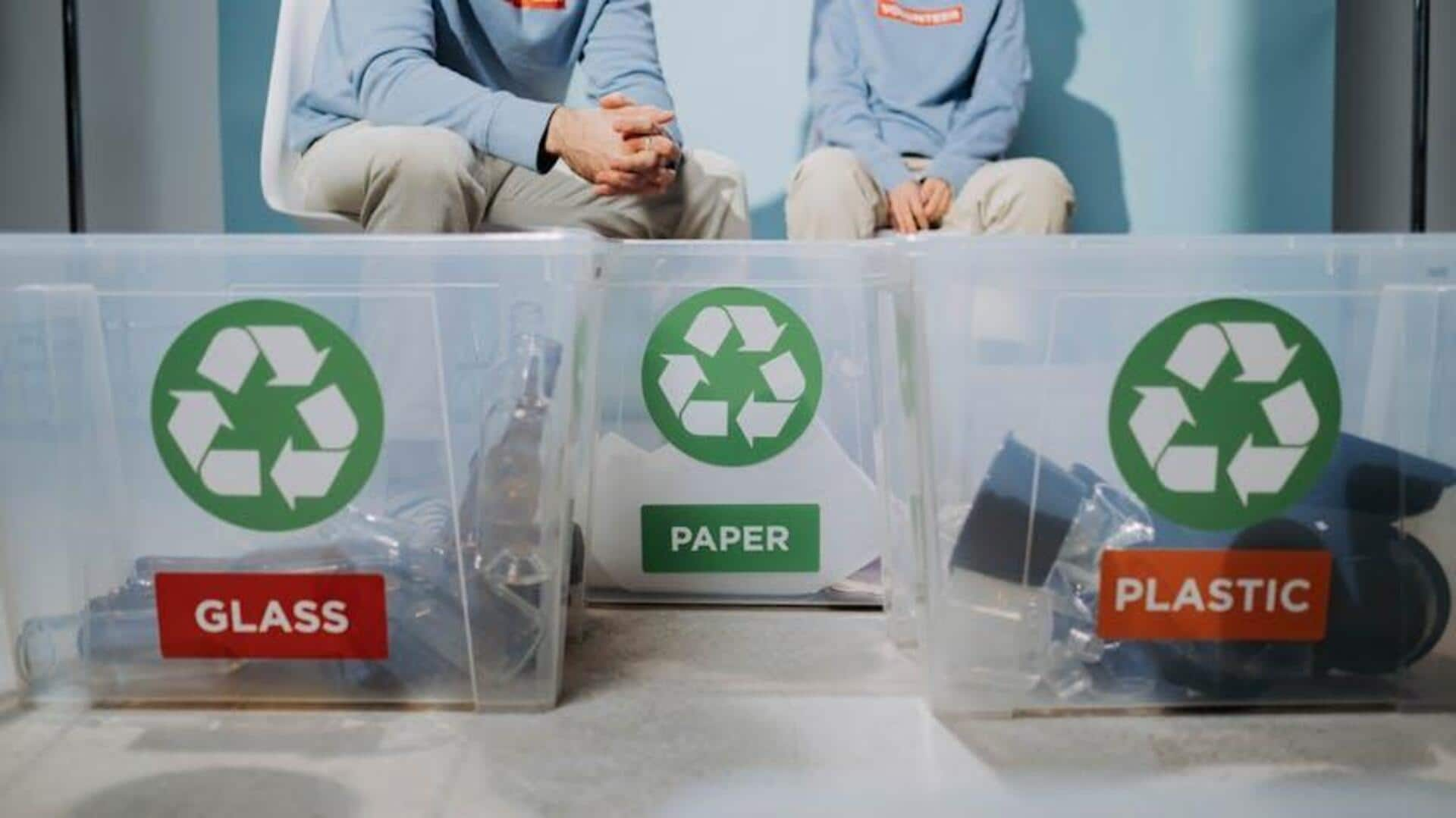
Smart zero-waste hacks for your home you didn't know
What's the story
Adopting a zero-waste lifestyle can seem daunting, especially when on a budget. However, with some creativity and resourcefulness, it is possible to reduce waste without breaking the bank. This article explores practical hacks that help transform everyday household items into sustainable alternatives. By making small changes in daily habits and rethinking how we use common products, anyone can contribute to a more sustainable future while saving money.
Cloth options
Reusable cloth alternatives
Rather than using disposable paper towels/napkins, try cloth alternatives. You can cut old T-shirts or towels into smaller pieces to make cleaning rags/napkins. These reusable options not just minimize waste but also save you money in the long run as you don't have to keep repurchasing disposable products. Just wash them after use and they're good to go again!
Homemade solutions
DIY cleaning products
Most commercial cleaning products come in plastic packaging and are loaded with harsh chemicals. Making your own cleaning solutions at home is not just eco-friendly, but also cost-effective. Common ingredients like vinegar, baking soda, and lemon juice can be used to make effective cleaners for different surfaces around the house. This way, you reduce plastic waste and know exactly what's being used in your home.
Creative storage
Upcycled storage containers
Instead of buying new storage containers, consider upcycling jars/boxes you already have at home. Glass jars from sauces/spreads make excellent containers for pantry items like grains or spices once cleaned thoroughly. Similarly, sturdy cardboard boxes can be decorated with fabric scraps or paint to organize household items neatly without spending extra money.
Waste reduction technique
Composting kitchen scraps
Composting kitchen scraps is a great way to cut down household waste while making nutrient-rich soil for gardening. This works if you can do it outdoors; indoor compost bins work well too. Items like fruit peels, coffee grounds, and vegetable trimmings all add to healthier plants when composted correctly. This keeps them from going to landfill sites. There, they'll contribute to greenhouse gas emissions over time, causing environmental problems globally today.